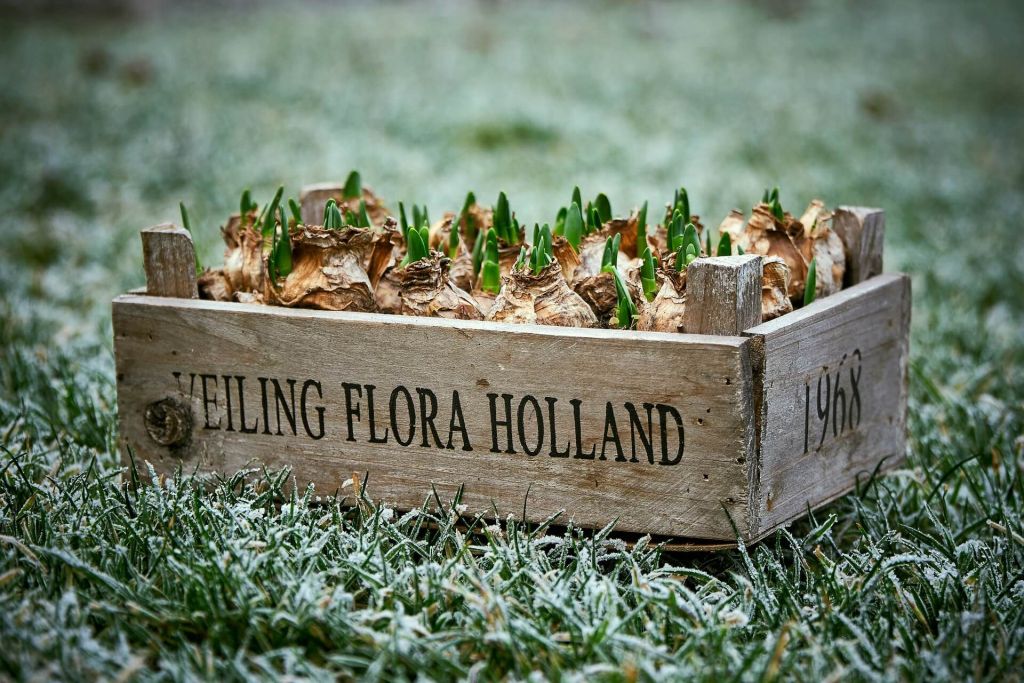Your garden in November

With the outdoors taking a turn for the cooler, you’d be forgiven for wanting to spend your time wrapped up inside with a hot drink - save for those occasions where there’s a firework display or bonfire parade to lure you outside, anyway. But, November days still offer plenty of opportunities to get out in the garden to complete some tasks. From getting your garden winter-ready to preparing for next spring (we know, it’s hard to imagine it right now), there’s lots to keep you occupied outdoors.
Tulip time
We might not have made it through autumn or winter yet, but that’s no reason not to start planning for spring. November is the best month to plant up your tulip bulbs - planting them as the weather cools down helps to protect them against fungal diseases which are typically killed off in the cold temperatures.
Tulips thrive in full sun, but they’ll also grow in partially shaded areas, so you have plenty of options to work with when picking a spot to plant them. Plant each bulb individually, or cluster them depending on the effect you’re looking for. Once you’ve planted them, water them well but after that you can pretty much leave them to their own devices - with wetter days ahead you shouldn’t need to keep watering them, so just look forward to March when your flowers should make a colourful appearance!
Check out our guide to bulb planting for more tips and tricks.
Rose relief
If leaves have fallen from your roses and they're showing signs of blackspot then you'll want to get rid of these before the winter. Leaves with the disease will affect your plants next year, so while spending time picking up leaves might not be your idea of gardening fun, it’s best to tackle this now to avoid issues later on.
Good Grit
Damp soil around your alpines can cause rotting at this time of year, so it's a good idea to invest in some gravel mulch to help keep the area clear. Our cockleshells make a great mulch and will help to protect the area. Shells are also thought to be a good way to keep slugs and snails at bay.
Garlic Growing
If you fancy having some home-grown garlic to keep vampires at bay next Halloween, then now's the time to plant your bulbs, along with onions and shallots too. They'll grow best in free-draining soil, so if you need to give yours a helping hand, look to add a compost with grit to aid drainage. You can also grow these vegetables in raised beds - once planted in either beds or borders, cover with fleece to protect them from frost and the colder, wetter winter weather.
Fruit Shoot
If you have apple or pear trees, then once they're dormant, you can prune them ready for next year. By doing this now, it'll encourage more fruit to grow.
If you're thinking of adding fruit trees to your garden then now is the perfect time to plant bare-root fruit trees - just make sure the ground isn't too wet.
Remember Remember
Well, there's no better time to have a bonfire than in the month where Guy Fawkes Night falls. If you have the space and obliging neighbours, then having a bonfire is a good way to clear some of your garden waste that isn't suitable for composting. Just make sure you check your pile for hibernating creatures before you set light to it.
Tread Carefully
When the lawn is hard with frost in the mornings it can make for a scenic winter wonderland you'd love to stroll through. However, as nice as getting that idyllic Instagram shot would be, spare a thought for your lawn below. Walking on frosty grass can damage it, causing the frost to rupture the grass leaf cells. Your footprints may also last long after the frost has thawed, so you could be left with lasting imprints in your lawn - not quite the picture perfect vision you had in mind!
